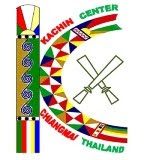Despite Burmese President Thein Sein's recent call for peace talks, deadly clashes continue to flare between government forces and armed ethnic Kachin rebels in the country's troubled north.
On Wednesday, the 10,000-strong Kachin Independent Army (KIA) engaged the Burmese army in hostilities which left three government soldiers dead in an area called Namphatkar, between Kutkai and Muse townships in Shan State.
The KIA seized a number of small arms from the government troops, according to Col. Zau Raw, the Shan State regional commander of the KIA.
He said that the deadly confrontation flared following the government's deployment of troops in the area to protect convoys of military trucks—which Naypyidaw bought from China's Yunnan province in July—travelling from the Sino-Burmese border.
A day earlier, on Tuesday, low-intensity fighting broke out between the two sides in Hpakant Township in Kachin State, said a KIA official who said that further details were not yet known.
Armed clashes have been frequent between the KIA and the Burmese army since early June in Shan and Kachin states, many of the skirmishes erupting near the Tapaing hydropower plant built by China on a tributary of the Irrawaddy River. The hostilities bring to an end a 17-year ceasefire and take the northern Burmese region to the verge of a civil war. Tens of thousands of people have been displaced due to the fighting, and the hydropower plant has been shut down.
In discussions with Naypyidaw, the KIA's political wing, the Kachin Independence Organization (KIO) has demanded that the government open an inclusive political dialogue with all armed ethnic groups based on the pre-independence 1947 Panglong Agreement which guaranteed ethnic minorities basic autonomy in a federal state—a promise that never materialized.
But Naypyidaw has insisted that the KIA joins a border guard force under the central command of the Burmese army, and that the KIO participate in the national political process under the terms of the 2008 Constitution drafted by the previous military regime.
While a renewed ceasefire remains inconclusive, the Burmese president recently referred to the KIA as “a mere insurgent group,” which is not representative of people in Kachin State, a statement that infuriated the Kachin rebel leaders.
Earlier this week, the government asked many of the armed ethnic groups to conduct preliminary peace talks with regional and provincial governments, saying that only after such measures had been taken would further discussions with the central government in Naypyidaw be offered.
On Monday, Thein Sein told parliament that the government will strive to reduce conflicts with armed ethnic groups and opposition forces which have not accepted the Constitution.
The hostilities in northern Burma continue despite Thein Sein's meeting with opposition leader Aung San Suu Kyi last Friday in Naypyidaw, which generated optimism among the opposition groups that the government was moving toward political and economic reforms.
Zau Raw said that ceasefire efforts have become increasingly difficult despite these apparent “olive branches” offered by the government which, in reality, continues to impose the Constitution upon the ethnic groups, including the KIA.
“We want to hold discussions based on the 1947 Panglong Agreement, but they want us to accept the 2008 Constitution,” he said. “Also, we want to hold discussions with the central government, not with a regional assembly.”
The US administration has said that the Burmese government must release all political prisoners in Burma, start a dialogue with opposition groups including Suu Kyi, and end human rights violations and military attacks against ethnic minorities before it considers lifting its punitive economic sanctions against the Southeast Asian nation.
Source from..http://www.irrawaddy.org/article.php?art_id=21961
Subscribe to:
Post Comments (Atom)







No comments:
Post a Comment